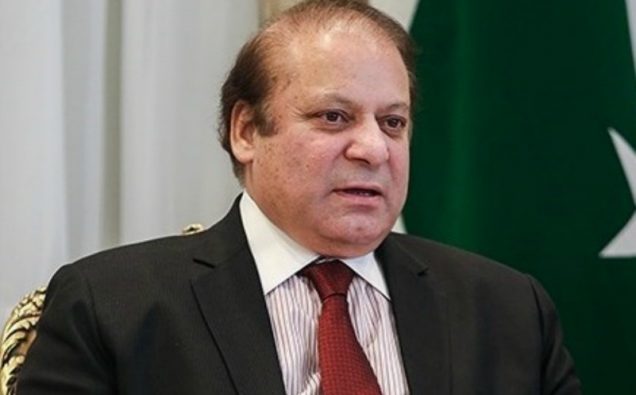
Administration of justice and civilian supremacy over all national matters are the two hallmarks of democratic governance, and Pakistan has been in the midst of friction-filled struggle for both.
The Panama Leaks corruption case against Prime Minister Nawaz Sharif and the Dawn Leaks episode – over reported civilian-military differences in the country’s counteterterrorism approach- encapsulate Pakistan’s quest for a functioning democracy, and the country must deliver on both for a better future of its burgeoning population of more than 200 million people.
In the end, the Dawn Leaks turned out to be an issue blown out of proportion if not a storm in the tea cup. But it pitched the elected government and military against each other and ratcheted up stakes and tensions among key political players.
After much sound and fury from both sides – the Nawaz Sharif government and Army Headquartersn- a news release announced an end to the Dawn Leaks saga – case settled, the military media wing’s tweet challenging the democratic authority withdrawn and the military stays committed to democratic form of the government.
The writ of the elected government in the Dawn Leaks is good news for democracy, irrespective of the cryptic forces or factors, both internal and external, behind the settlement. At least on surface, saner heads seem to have shown the way.
If the issue has been genuinely resolved – as claimed by the ruling PML (N) and the establishment- it must aid Pakistan’s fight against terrorism. The democratic government and the military must see eye to eye on the issue of combating all terrorists without any distinction.
But the Dawn Leaks issue came in the middle of another much bigger scandal riddling the Pakistani politics and roiling the Pakistani society – corruption charges against Prime Minister Sharif.
The key question now facing the national political scene is simple. Does the Dawn Leaks’ outcome indicate something similar might happen to the Panama Leaks corruption scandal?Although, it is hard to predict exact future course for Pakistani politics, it seems the Panama Leaks corruption case would lead to its logical end, and spell more trouble for Sharif – now into fifth and last year of his elected term. His previous two terms remained incomplete during the 1990s due to power struggles between the military and the political leaders.
Since the case is pending before the highest Pakistani court, and the tone and the content of the judgement seeking more details on evidence about Sharif’s ownership of the undeclared property is so damning and charge sheet-like, it is hard to rule out dispensation of justice in the case.
Secondly, the composition of the JIT – the Joint Investigation Team with its officials drawn from several departments – also boosts confidence that the Sharifs cannot have it their way. The Sharifs’ many abortive attempts to justify the ownership of and means to get the offshore property during the case hearings have denuded them of moral power to turn the tide their way
Thirdly, political forces, particularly Imran Khan’s PTI would not settle on anything less than seeing justice in the high-stakes corruption case about Sharif’s London flats. The other opposition party, the PPP, might also try to resurrect itself in the crucial and the largest political battlefield of Punjab on the issue with a campaign of its own if Sharif gets reprieve in any form.
The corruption case aside, the Sharif’s failure to overcome power shortage, bolster exports and energize the country’s foreign policy, have compounded his problems are likely to weigh heavily on the future of the PML (N) come the 2018 election.
If the Supreme Court is able to deliver justice in the Panamagate case, it would be seen as a big step toward making Pakistan a functioning democracy, which is also accountable. But for that to happen both the bench and the investigators will have to adhere strictly to principles of fair play and justice.





![By User:Herostratus [Public domain], via Wikimedia Commons](https://www.viewsnews.net/wp-content/uploads/2016/05/Stop-Handshake-of-corruption-300x289.jpg)











